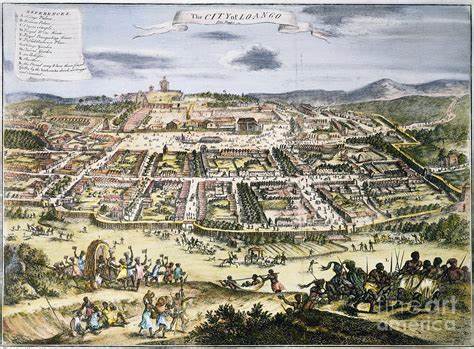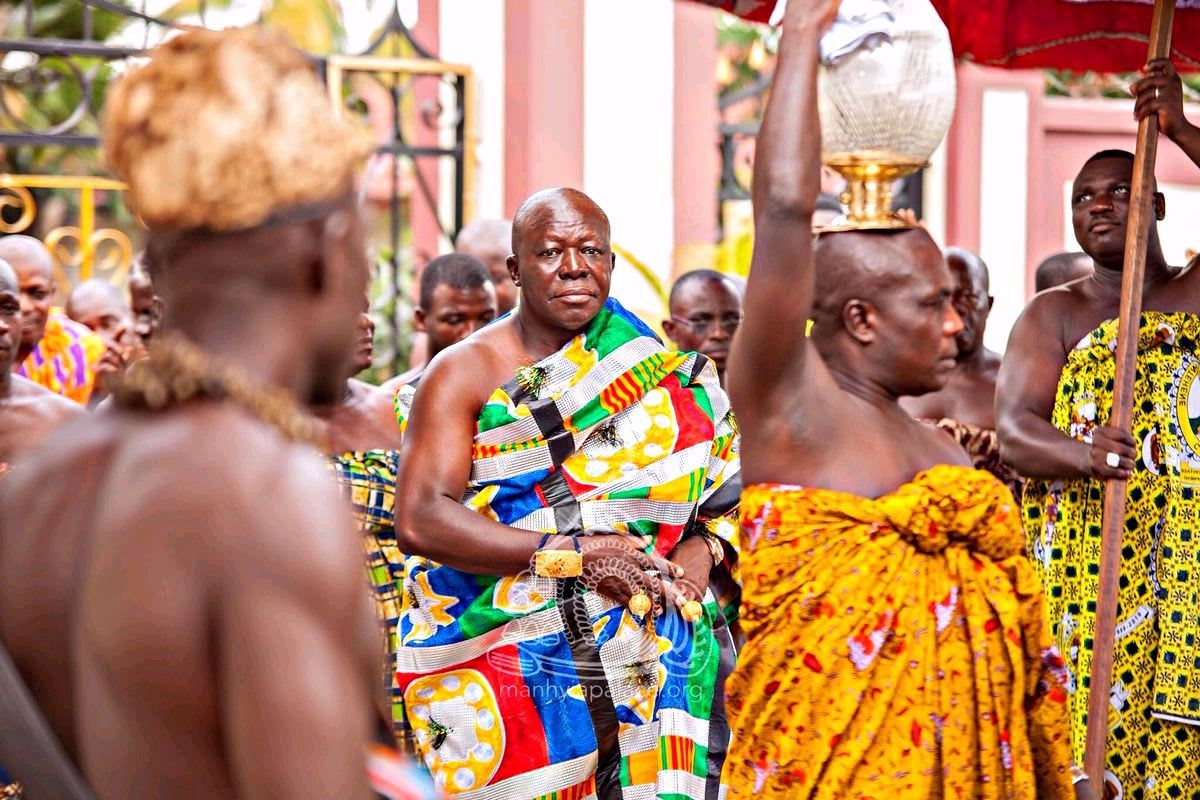The Anglo-Aro war (November 1901- March 1902) was a conflict between the Aro Confederacy, in present-day South-East Nigeria or Igboland, and the British Empire. It was the culmination of years of rising tension between the Aro leaders and the British. Though the Aros fought gallantly, the war ended in British victory.
Slavery in the Aro Confederacy
The Aro people are a sub-group of the Igbo ethnic group of Nigeria. In the mid-17th century, the Aros formed the Aro Confederacy, which went on to become a large network through which they conducted slave trade, alongside the Ibibio people of Cross River in present-day South-South Nigeria. The Confederacy’s influence also spanned present-day Cameroon and Equatorial Guinea.
The Aros served an oracle called Ibini Ukpabi, known as Long Juju amongst the British, and there was a practice whereby those who entered the god’s shrine to beg for help instantly became slaves. Legend has it that agents of Ibini Ukpabi would chase unsuspecting travellers and pilgrims into the shrine, hoping that they would seek intervention from the oracle, thereby becoming slaves. The priests would then sell them off.
At the time, slave trade was very lucrative as nearby coastal Niger Delta city-states such as Opobo and Calabar (now the capital of Cross River), were centres for the export of slaves. Consequently, the Aro Confederacy easily expanded and formed 19 kingdoms, the most powerful of which was its capital Arochukwu. Even when the global abolition movement slowed slave exports, the Aros and some other ethnic groups in the region shifted their focus to internal slave trade.
The Aro Expedition
When the British moved into Igboland in the late 19thcentury, they tried to put an end to slavery in the region by promoting legitimate trade instead. The British also abhorred the alleged Aro practices of making human sacrifices to placate Ibini Ukpabi and cannibalism.
The Aro people and their allies resisted British penetration out of economic, political and religious concerns. They frustrated British missionaries’ efforts to introduce Christianity, as it threatened the worship of Ibini Ukpabi. Additionally, they carried out raids and invasions in order to undermine British colonial penetration from the 1890s.
Though the British had recorded some success in slowing internal slave trade, they were not satisfied, so they set out to launch an expedition to abolish slavery.
The expedition was said to have the following major objectives:
1. To end slave dealing and the slave trade by enforcing the Slave Dealing Proclamation No. 5 of 1901 throughout the entire territories
2. To abolish the Juju hierarchy of the Aro tribe, which had wrought much injustice among the coast tribes and was opposed to the establishment of the British government
3. To introduce civilisation to the Aro people
4. To induce locals to engage in legitimate trade
5. To introduce a proper currency as a replacement for slaves, brass rods and other forms of native currency, and to facilitate legitimate trade
6. To establish a labour market to substitute for the system of slavery
Sir Ralph Moor, the British High Commissioner of the Nigerian Coast Protectorate, got a go-ahead from Sir George Goldie, the founder of the Royal Niger Company, and went on to plan the expedition alongside the Company in September 1899. However, due to a lack of sufficient manpower, they were unable to execute it for over 2 years.
It is worth noting that although the British painted the motives behind the expedition as noble, many Igbo historians argue the contrary. According to New World Encyclopedia, the king’s official website described the attack as “unwarranted” and asserted that it was driven by “the selfish economic interest of the then British Empire”.
The abolition of slavery appeared to be a convenient tool to further their imperial agenda. Moreso, the reports of cannibalism seemed to come only from the British, suggesting that they were merely propaganda. Till today, no one is sure of their historical accuracy.
The Outbreak of the Anglo-Aro War
The Aro, very much aware of the British government’s expedition plan, refused to sit tight and wait for them to strike first. Thus, before the British could initiate the expedition in November 1901, the Aro launched their first major offensive. The latter—led by Okoro Toti—sacked Obegu, another community in Igboland which at the time was a British ally. The attack resulted in 400 deaths, thereby accelerating the British’s preparation for their offensive.
On 28th November, 1901, Lt. Col. Arthur Forbes Monataro led 87 officers, 1,550 soldiers and 2,100 carriers in 4 axes of advance from Oguta, Akwete, Unwana and Itu—in present-day South-East and South-South Nigeria—to Arochukwu. Although the Aro forces were not equipped with modern weaponry, they were still able to brave through the attack. However, a month later, Arochukwu was captured after four days of intense battles. Consequently, the Ibini Ukpabi shrine was blown up.
The battles between the British and Aro forces persisted throughout the region until March 1902. The decisive victory of the British was in the battle at Bende, one of the most powerful Aro kingdoms. Three weeks later, the Aro Expedition was officially brought to an end.
The Aftermath
Following the war, some of the Aro leaders, like Okoro Toti, were arrested and executed while the king of Arochukwu Eze Kanu Okoro went into hiding—though, he was eventually arrested. Numerous priceless artefacts belonging to the Aros were lost. Additionally, the British were able to free Ibibio and non-Aro Igbo slaves.
The formerly invincible Aro Confederacy was dismantled and its territory joined to the British Protectorate of Southern Nigeria, which was established the previous year.
Unable to stand on their own, Aros joined guerilla campaigns led by other Igbo peoples, such as Afikpo (1902-1903) and Ezza (1905) amongst others.
For years after the Anglo-Aro War, the British still struggled to exert dominance in Igboland and were forced to deploy military patrols to various parts of the region. Some of the other major conflicts were the Nri Conflict (1905-1911), Ekumeku War (1883-1914) and Igbo Women’s War (1929).
Today, Arochukwu is the third largest city in Abia State in South-East Nigeria. The city holds a lot of relevance for the Igbo people, especially as there are a number of Aro associations championing the preservation of Aro culture and history.
The story of the Anglo-Aro War is one that shows how European colonial powers used faux stances of moral superiority as an excuse to invade African peoples. Somehow, the empire that had previously transported millions of enslaved Africans around the world was now trying to whitewash itself as an anti-slavery saviour. The irony of the British colonial government’s posturing in Igboland is hard to miss.










